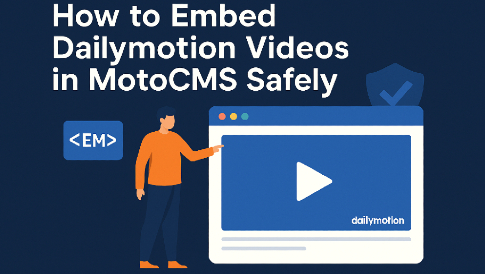How VPNs Enable Access to Websites with Geographical Restrictions
Website designers are progressively becoming accomplished in the profession; many have become proficient in web designing, and this is vital to an increasingly globalized society, where access to information and services across national borders has become more relevant than ever. Websites mean different things to several people; for students, teachers, and researchers, websites have become their source of information, playing the role of libraries; with a click, students or teachers can access all the information they need to prepare a comprehensive lecture or write out several pages of a thesis.
The Role of Websites in E-Commerce
In the E-commerce sector, websites have taken over physical stores; since online shopping is gradually becoming the norm, a website is the first point of call for visitors and potential customers. The job of a website developer is increasingly becoming fascinating and intricate; search engines crawl thousands of websites daily for ranking and accurately placing websites for website visitors to get relevant information to their searches; web developers must incorporate all essential plugins and add-ons to enable the website to run and update smoothly.
VPNs to the Rescue
While web developers and search engines diligently do their jobs, many web surfers often encounter frustrating geographical restrictions that prevent them from accessing content in other regions. It has become common for some web surfers to encounter the “this item isn’t available in your country” error while browsing some websites.

Any web surfer who comes across “this item isn’t available in your country error” should become frustrated; however, this is not a problem web designers and developers can conveniently handle; the issue borders on geographical restriction policies of some regions and countries. For an international student or an online shopper hoping to quickly pick relevant information from a website to finish up an assignment or get details to make a final purchasing decision, nothing can be more frustrating than coming across “this item isn’t available in your country error,” while surfing the internet.
Fortunately, virtual private networks (VPNs) have become one of the most effective solutions for bypassing these restrictions and circumventing the “this item isn’t available in your country” error.
Why Countries Geo-Restrict Some Content
Before delving into how VPNs can help bypass geographical restrictions, you must know why websites, regions, or countries geo-restrict certain content. The reason for geo-restricting content isn’t farfetched, especially with industries like media, entertainment, and software.
It’s common for content creators to enter into licensing agreements that curb the extent of distributing products.
When a movie has exclusive rights sold to a specific region, and you are outside the area, you will encounter the “this item isn’t available in your country error” while attempting to access the movie. Also, certain countries have unique laws and regulations, like the GDPR of the European Union, concerning content, deeming some films and TV shows inappropriate by local standards and, therefore, not permitted for broadcast to the populace.
Most businesses have websites where their customers can access valuable information regarding their products and services. As the global market has become very competitive and organizations thrive on market strategies to outperform competitors, it’s normal to restrict information that can put a business in a compromising situation. If you log into such websites, you will come across the “this item isn’t available in your country error.”
Nothing frustrates a student who needs content to beat a project deadline more than the “this item isn’t available in your country error;” however, it serves its purpose. From a cybersecurity perspective, the “this item isn’t available in your country error” can discourage hackers who want to access your website to add malicious ads or launch advanced malware infections.
How VPNs Help Circumvent Geo-Restrictions
A VPN, or Virtual Private Network, creates a secure tunnel between your device and a server operated by the VPN provider that encrypts your internet traffic when you log into the web, making it gibberish to third parties, potential hackers, and ISPs, who may accidentally access your sensitive information to monitor your online activities. A VPN masks your IP address and assigns a new IP address to your device whenever you log into the internet; if your VPN assigns an IP address in the UK to your device, it appears like you are browsing from the UK for anyone trying to track your browsing history.
Several VPN services have multiple servers in diverse locations; deploying the multi-hop, cascading, or double VPN technology, the VPN routes your data through several servers, creating a complicated web and making your internet traffic incomprehensible to anyone tracking your online activities.
To circumvent geo-restrictions and increase internet speed for web surfers, a VPN deploys geo-locational obfuscation, post-quantum cryptography, and split tunneling 2.0 technologies.
1. Geo-Locational Obfuscation
This technology is an innovative breakthrough in circumventing geographical restrictions; it disguises your location and allows you to access region-restricted content effortlessly. A VPN integrating geo-locational obfuscation enhances unparalleled access to a globalized internet for students and researchers.
2. Split Tunneling 2.0
As an advanced version of the classic split tunneling technology in VPNs, it enables fine-tuned customization with users selectively choosing data types that must pass through the encryption tunnel and the internet traffic that should access the regular internet directly, optimizing performance and providing a better online experience, especially for users who depend on fast internet speed for live-streaming geo-restricted movies and games that can be frustrated by ISP throttling and bandwidth usage.
3. Post-Quantum Cryptography
The exceptional computing power of quantum computers is a plus for users who want to access geo-restricted content; however, the ability to decipher encryptions and crack passwords classic computers can’t attempt poses grave danger from quantum computers. VPNs deploying post-quantum cryptography can withstand the computational power of quantum computers, ensuring the durability and wholesomeness of VPN security protocols.
The Need for a Reputable VPN Provider
There are several VPNs with quality features in the market; however, to effectively bypass the “This item isn’t available in your country error,” you must do diligence and subscribe to a reputable VPN provider with a wide range of server locations, strong encryption, and security features, high connection speeds, and user-friendly interface.
Conclusion
While geographical restrictions constitute a significant barrier to accessing content online, VPNs have become a veritable tool for circumventing these limitations. With geo-locational obfuscation, split tunneling 2.0, post-quantum cryptography, and multi-hop, cascading, or double VPN innovative features, you can securely choose your browsing location and access information, media, and services previously restricted by regional limitations.
Subscribing to a reputable VPN involves considering server locations, speed, user experience, and security features. As you strive to bypass the complex web of geographical restrictions and the “this item isn’t available in your country error,” a VPN stands out as a reliable tool in your quest for unrestricted internet access, allowing users to experience the Internet without borders.




Leave a Reply